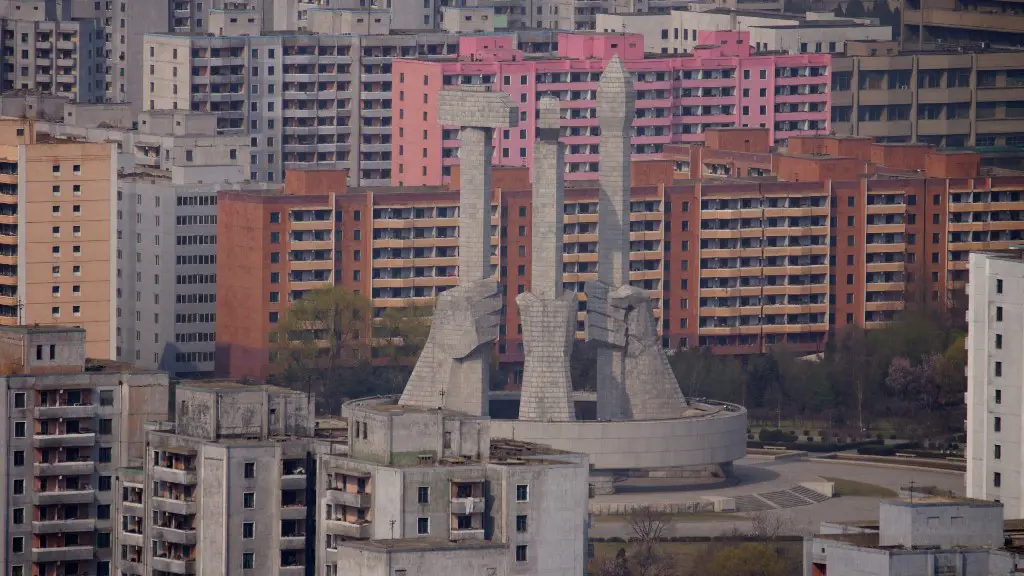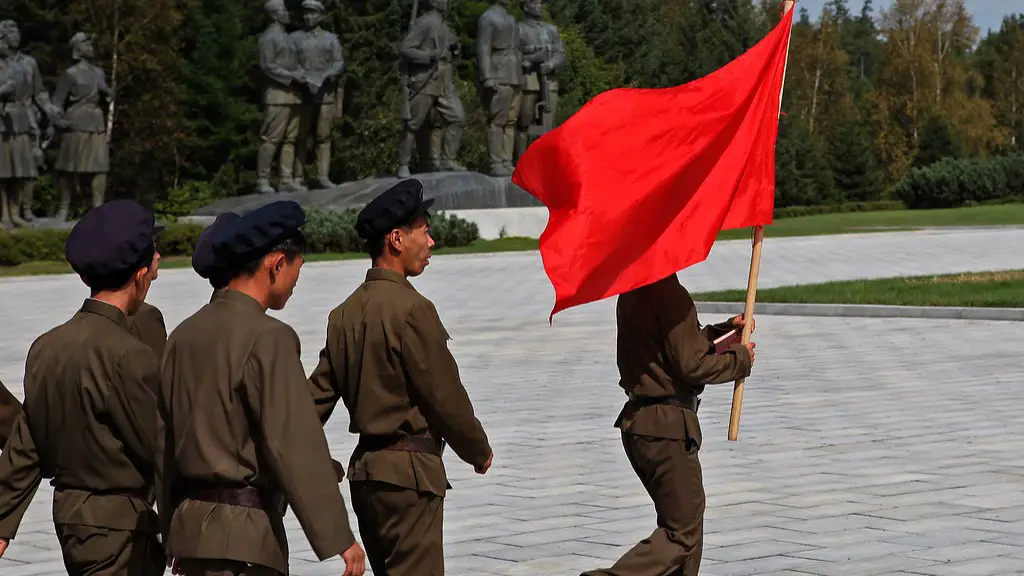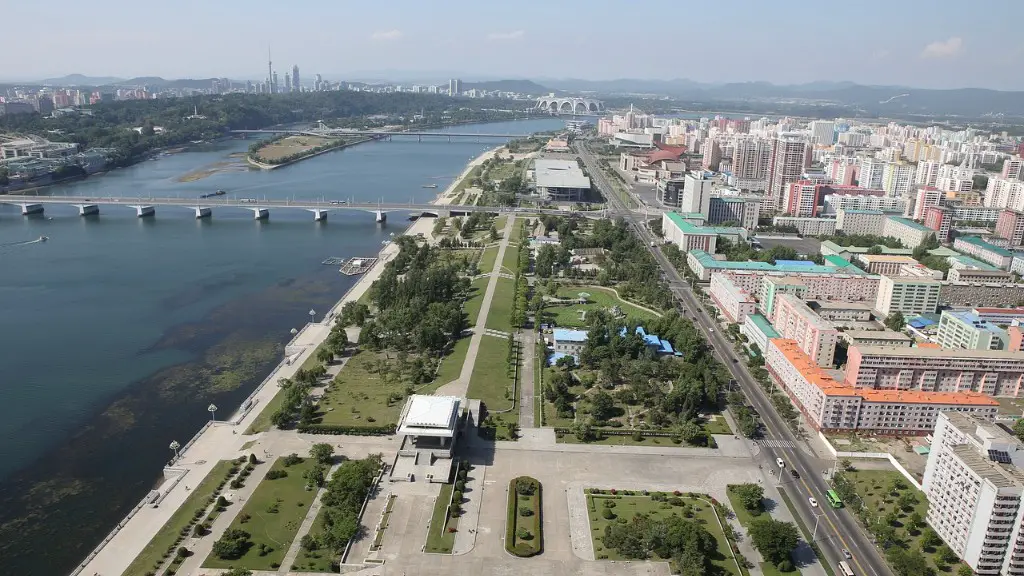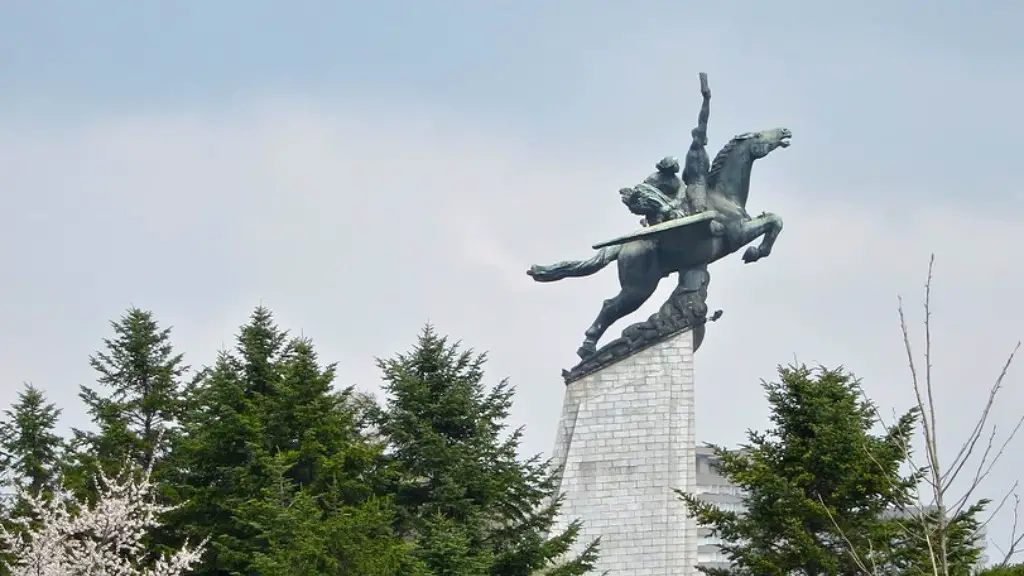The Political Status of North Korea
North Korea, officially known as the Democratic People’s Republic of Korea (DPRK), is a one-party dictatorship that is kept afloat by trade with neighboring China and intermittent aid from South Korea and other countries. North Korea has a long-standing adversarial relationship with the United States, culminating in a post-WWII separation of the two countries. North Korea has a largely isolationist policy, with strong nationalistic and anti-Western sentiments. It has a nuclear weapons program and has become increasingly hostile in its rhetoric against the United States and its allies in recent years.
The DPRK has a long history of threatening to use military force in the pursuit of their goals. In the early 2000s, it conducted its first nuclear weapons test and has since declared itself a nuclear power. The United States and its allies have condemned the move, citing both security and ethical concerns. Since then, North Korea has continued to make aggressive statements, threatening to attack the United States and its allies, particularly South Korea and Japan.
Regional Security Threats
The current security climate on the Korean peninsula is particularly tense. North Korea has developed long-range missile technology, capable of reaching the West Coast of the United States. It has conducted several missile tests in recent months, leading to heated rhetoric between the two countries and calls for further sanctions. Recently, a steady stream of reports has come out of the DPRK claiming that they are planning a test launch of an intercontinental ballistic missile (ICBM) capable of reaching Los Angeles.
The United States has responded with strong condemnations of the tests, along with economic sanctions and a show of military force in the region. These responses have had limited success in deterring North Korean aggression and caused concern among regional allies, particularly South Korea, who has long been at odds with the DPRK over their nuclear ambitions.
Risks Associated With DPRK Aggression
The potential consequences of a North Korean attack on Los Angeles would be catastrophic. The city is home to an estimated 4 million people and is the second-largest city in the United States. Los Angeles is a major hub of international business, with a large financial sector that would be severely impacted by an attack. The city is also home to some of the most important media outlets in the world, meaning that news of an attack would be felt around the globe.
Military experts believe the most likely attack scenario would involve an ICBM hitting Los Angeles. Such an attack would cause significant structural and economic damage, as well as untold casualties. Moreover, the psychological impacts of such an attack could spark a wave of fear and panic across the United States and the world.
International Responsibility
The United Nations Security Council has passed a number of resolutions in the past decade condemning North Korea’s nuclear weapons program, but the DPRK has consistently ignored these measures. The primary responsibility for preventing a North Korean attack lies with the international community to pressure the DPRK to abandon its nuclear ambitions. The United States and its allies have been working to pressure North Korea by implementing a number of economic sanctions and other diplomatic measures.
At the same time, the United States has been increasing its own military presence in the region, with naval exercises and a show of force designed to deter North Korea from engaging in hostile actions. While these efforts have had limited success, they have been effective in limiting the ambitions of the DPRK and preventing them from taking more extreme actions.
US Response
The United States is fully prepared to respond to a North Korean attack on Los Angeles or any other American city. The American military has the capability to launch a quick and devastating strike against the DPRK, inflicting immense damage and essentially ending their nuclear threat.
Despite this capability, the United States is reluctant to engage in a full-scale military conflict with the DPRK. The United States is aware that it would be impossible to completely contain the effects of such an attack and that any large-scale military exchange would have devastating consequences for all parties involved.
Implications for World Peace
At present, there is no indication that the DPRK is actively seeking to launch an attack on Los Angeles, or any other American city. However, the threats and rhetoric coming out of Pyongyang should not be taken lightly, as the regime has proven itself to be unpredictable and dangerous in the past.
The possibility of a North Korean attack on American soil is a stark reminder of how fragile the international system is and how quickly tensions can escalate. It is important that the international community continue to work together to prevent further escalations and protect world peace.
Economic Impact
A North Korean attack on Los Angeles would have severe economic consequences for the global economy, particularly in the short term. Los Angeles is a significant financial hub and a major destination for international trade and commerce. The death, destruction, and financial losses associated with an attack could have dire economic repercussions for the entire world.
Moreover, the loss of such an iconic city would have a deep psychological impact and could trigger a widespread loss of faith in the US government’s ability to protect its citizens. This could have far-reaching market and political implications, as well as a destabilizing effect on the global economy.
Social Impact
The human cost of a North Korean attack on Los Angeles would be immense. The city is home to a large and diverse population, and any attack would have a devastating impact on them. Moreover, the ripple effect of such an attack would be felt around the globe, with implications for those living in other countries.
The potential destruction of Los Angeles could also lead to social unrest among affected populations, as the attack would be perceived by some as a direct attack on the United States. This could lead to further political and social instability, both in the United States and elsewhere.
Ethical Implications
The potential destruction of Los Angeles at the hands of North Korea raises some difficult ethical questions. North Korea’s nuclear weapons program is widely considered to be a flagrant violation of international law and human rights violations, and any attack against an innocent population would be an abhorrent crime.
The international community must come together to not only protect Los Angeles from attack but also to ensure that the DPRK is held accountable for its actions. This requires both diplomatic and military initiatives to safely contain the nuclear ambitions of the DPRK and protect global citizens from their aggression.
Role of Technology in Defense
The development of new technologies has had a profound effect on the international security landscape. The development of AI-enabled defense systems, such as missile defense systems, have enabled faster and more accurate identification and interception of incoming threats. In the US, intelligent defense systems monitor the airspace for any missiles coming from North Korea and can autonomously intercept and destroy them.
AI-based defense technology has been a critical tool for protecting the US from North Korea, but the technology is not perfect. AI systems are limited by their data and are prone to errors, particularly in high-stakes scenarios like incoming missiles from the DPRK. It is important that the US and its allies continue to refine and improve these defense systems.
Cybersecurity and North Korea
The advancement of cyber technology has had a major impact on the international security landscape, with many nation-states investing in cyber operations as a way of achieving their political and military objectives. North Korea has been a major aggressor in the cyber domain, carrying out a number of high-profile attacks in recent years.
The US has worked to counter North Korean cyberattacks, but the use of cyber technology presents an added layer of complexity. Traditional defensive strategies are not always applicable in the cyber domain, as it is difficult to accurately identify the source of the attack and there is a lack of a clear and consistent international framework for dealing with such issues.
Implications for the Nuclear Non-Proliferation Treaty
North Korea’s threat to nuke Los Angeles has serious implications for the Nuclear Non-Proliferation Treaty (NPT). The NPT is a critical tool in limiting the spread of nuclear weapons and technologies and has been a cornerstone of global security for decades.
If North Korea is allowed to openly flout the international rules established by the NPT, it could open the door for other countries to pursue their own nuclear ambitions and further destabilize the international security environment. It also undermines the legitimacy of the international system, as it shows that some countries, such as the DPRK, are allowed to break the rules with impunity.
Conclusion
The North Korean regime has an established history of provocative and aggressive behavior, and the threat of a nuclear attack on Los Angeles should not be taken lightly. The potential consequences of such an attack are immense, both for the people of Los Angeles, the United States, and the world at large.
It is incumbent on the international community to act swiftly and decisively to prevent any further escalation and protect global security. This will require not only military and diplomatic pressure but also a commitment to upholding the values and principles of the international community, such as the Nuclear Non-Proliferation Treaty.



